How To Help Your Child Cope With The Death Of A Loved One
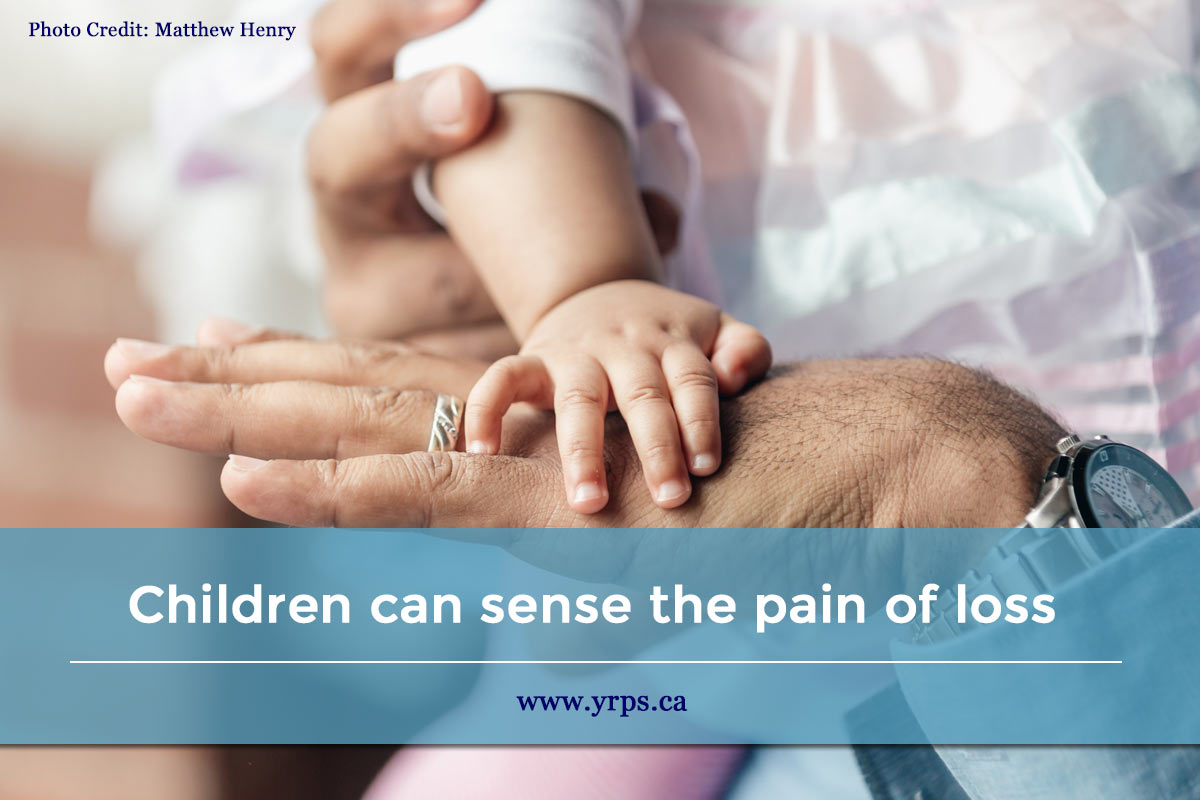
Death is never an easy topic to comprehend at any age. More often than not, there is no reasonable explanation for the loss of a life. Often it is easier to explain if the person is older or died of natural causes. Adults can find comfort in this knowledge. However, how would you explain death to a child?
The brain of a child is continuously growing and developing. Teaching a child to understand life, behaviour, and emotions is an ongoing process. When a loved one dies, your child may not be able to grasp the concept of that person being gone. Depending on how old your child is, there are many methods of communication and ways to teach them to accept the loss in their life.
At What Age Do Children Understand Death?
Most children will start to understand death around the age of four, depending on their emotional intelligence. Use nature to illustrate how life works — for example, the life cycle of a butterfly demonstrates birth, change, and death. Through the ages of five through seven, children begin to understand permanence and non-functionality. The ideas that once a body dies it cannot be alive again and that a dead body is not able to do the things a living person can begin to take hold.
Questions About Death
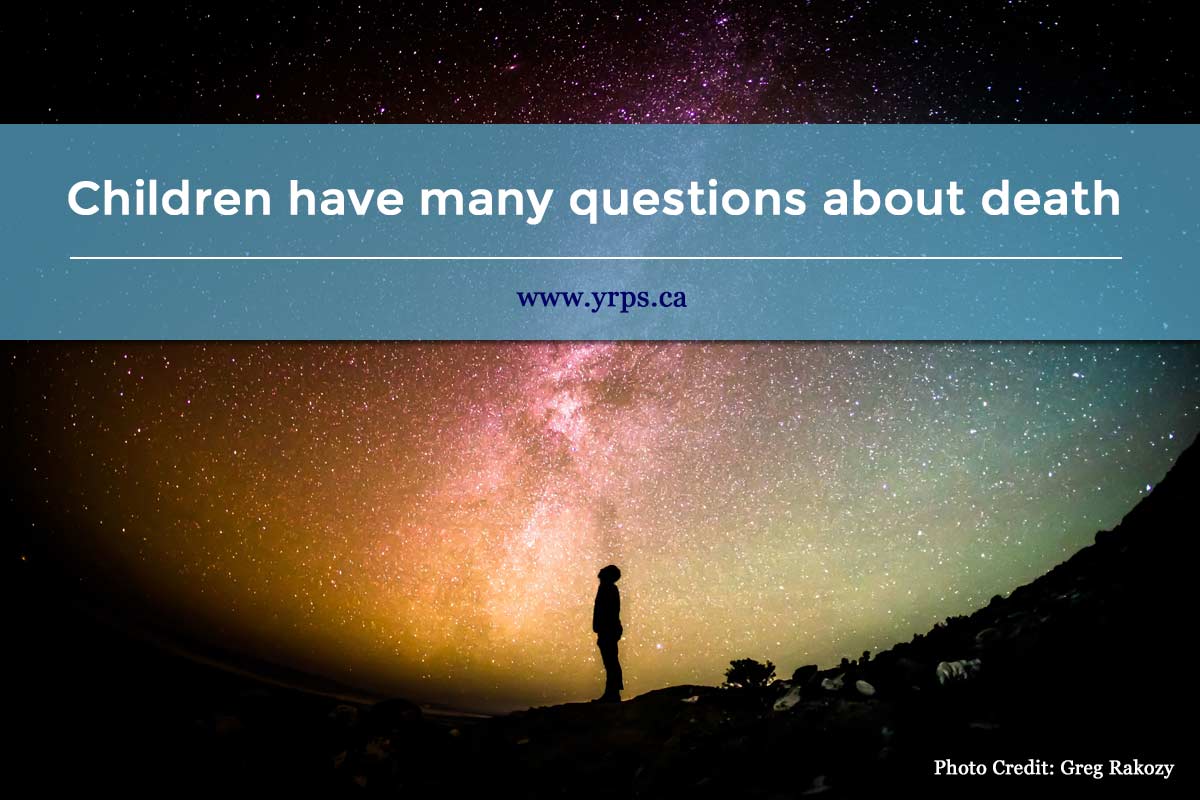
Even though your child may understand these concepts, there will still have questions they need answered. It is a normal part of the grieving process and should be expected.
- “Can a dead person feel?”
- “If someone dies do they still eat?”
- “Can a dead person move around?”
- “Do they still dream?”
Be patient, and answer your child honestly and openly. Using euphemisms like “they went to sleep” or “we lost Grandma last night” can confuse children into taking your phrases literally. Questions about death may be re-enacted through play. For example, your child may put their dolls “to sleep” or create a “funeral” for their cars or action figures. These are opportunities to talk to your child about what happens next after their loved one has died.
Changes To Routine
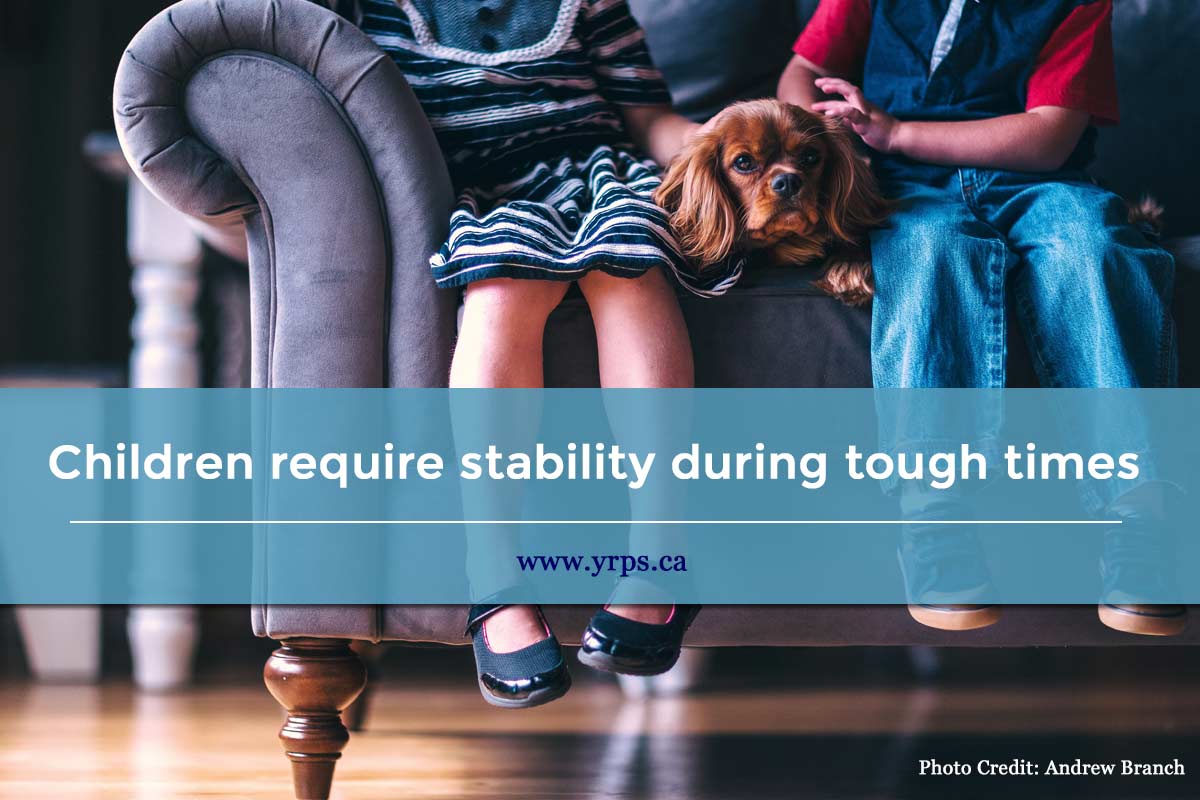
It’s important to talk to your child about the changes that will occur after a loved one has passed away. Ending such rituals such as a Sunday dinner at Grandma and Grandpa’s, or aunt Sarah taking everyone to the summer strawberry fair are important changes that will affect your child. Setting aside time to have an open discussion about the upcoming adjustments to routines and rituals will help your child gain a greater understanding of the situation. In turn, it will make them feel safe as they will be prepared for changes as opposed to feeling like the rug has been pulled out from under them.
Maintain Routine
Equally as important as discussing changes to your daily schedule is maintaining a routine to keep stability in your child or children’s lives. In the beginning, taking time to grieve as a family is integral. Afterwards, getting back to your daily routine teaches your children that life goes on, even after tragedy. Routine gives children a feeling of safety and security. This will teach children that though we cannot control death, we can control how we handle it afterwards.
Remember the Good Memories
Whether your child was extremely close with the person who died (grandparent, or aunt/uncle) or someone they didn’t see very often or know very well (family friend or out of town great-grandparents) emotions will still be present.
Here are some things you can do with your children to remember the good times.
- Share good memories of that person. Whether it be funny stories, jokes they used to tell, books you read together, or special sayings that person used. Remembering good memories is part of the grieving process and will help everyone come to terms with the loss.
- Draw pictures of the things you did with the person, or things you had hoped to do with them. Art is another beautiful way to help your child express loss, sadness, or anger by channelling it onto paper.
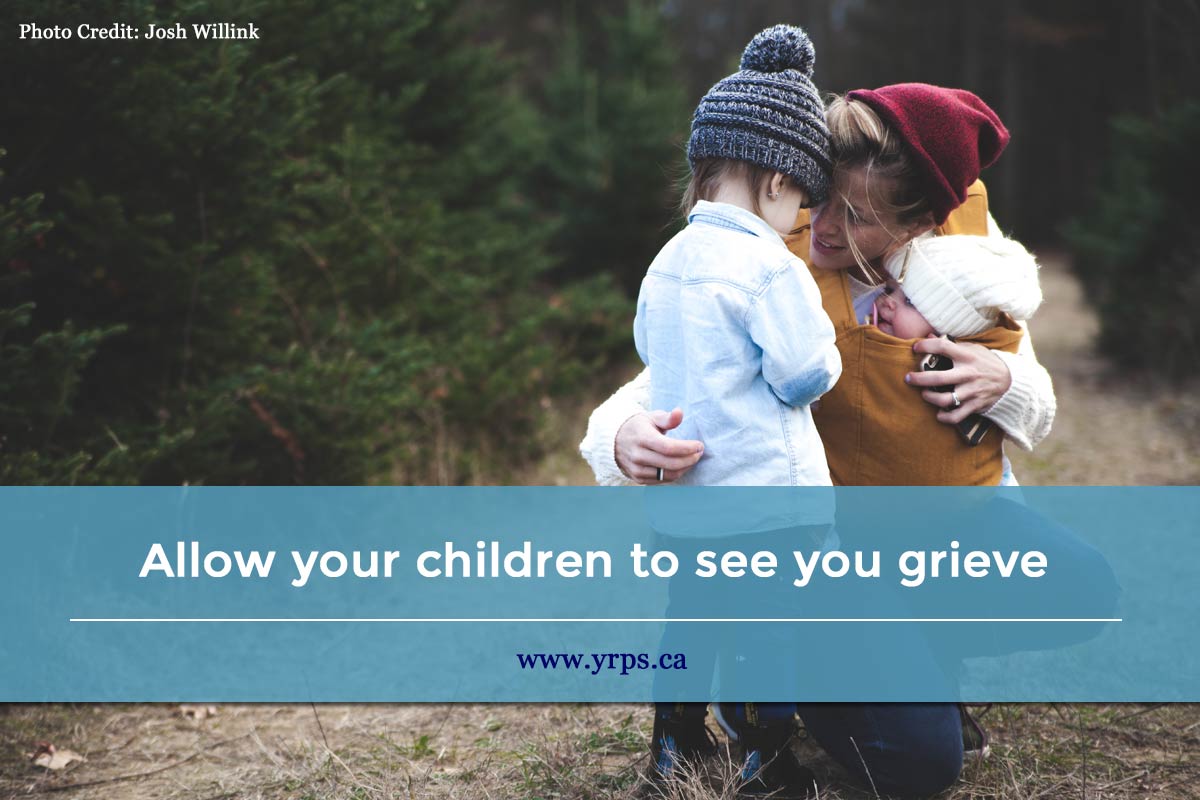
- Don’t forget yourself. Allowing your children to see you grieve, feel sadness or anger helps to validate their own emotions.
- If you have multiple children, encourage them to talk to each other about the good memories without you present. It will help create a bond that lets children know that they can lean on each other through tough times.
The Function of a Funeral
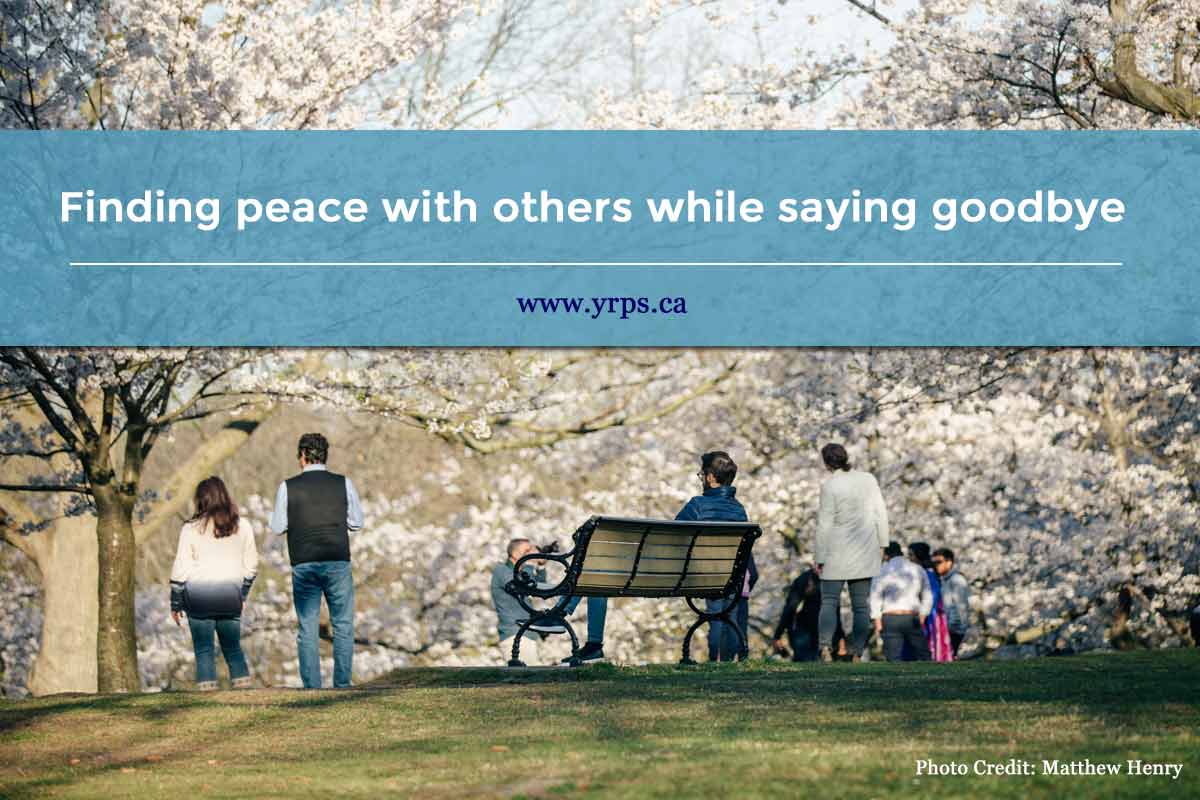
The funeral can be one of the most challenging parts of dealing with death. Seeing so many adults crying or filled with emotion can be a lot for children to process. Before the day, talk with your child about what to expect. Discuss whether the dead person is being buried or cremated. Explain what those things mean in advance. If the funeral will be different than what normally happens in your household (for example, a religious vs a secular funeral), have a conversation about it. Teach your child a funeral can be peaceful ways to say a final goodbye to a loved one.
Signs Your Child May Need The Help of a Professional
There may come a time when stepping outside of the family to a trusted professional is the next best thing you can do. You may have done everything “right” to help your child come to terms with death, and they still show . Especially if dealing with the loss of a parent, Here are some things to look out for:
- Unreasonable fears
- Excessive emotional displays
- Asking for help with things they can do by themselves
- Regression (ex: bedwetting).
- Unreasonable responses towards established rules
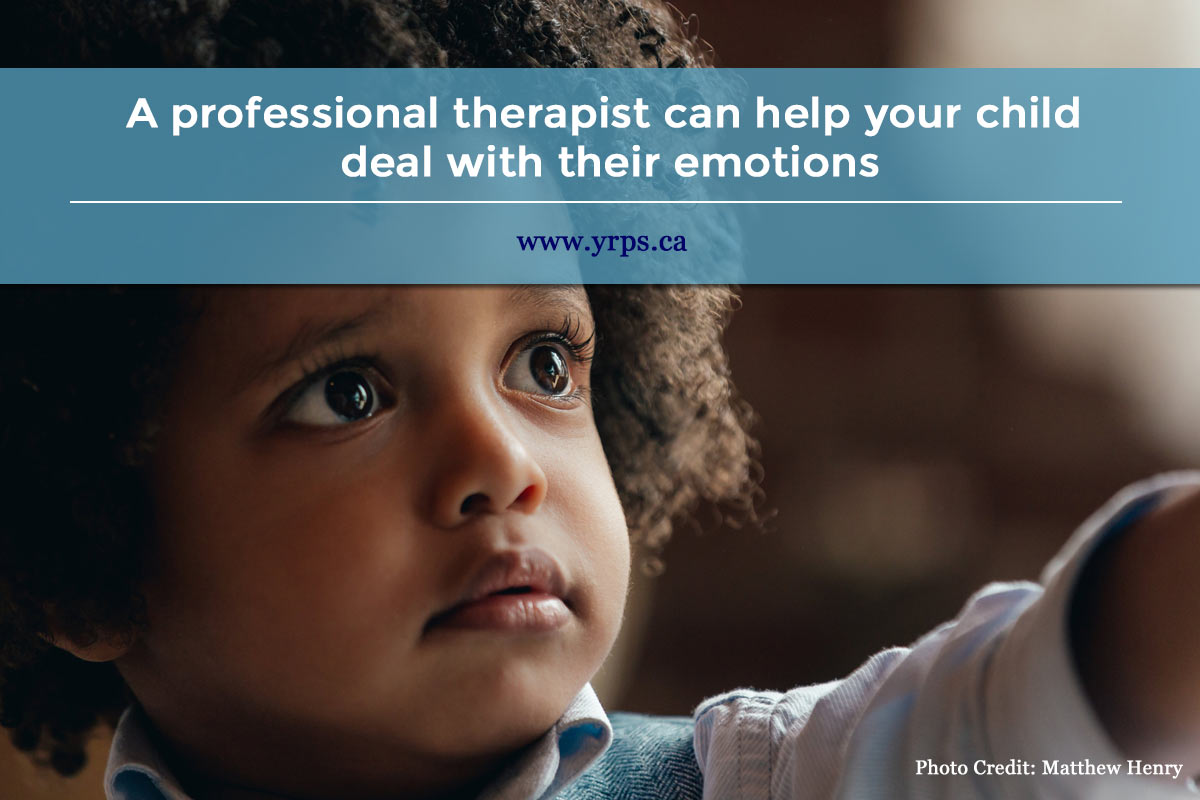
If your child is struggling with coming to terms with death, let them know they aren’t alone. Be patient and remind them to be patient with themselves. It can be a long journey to come back from losing a loved one, but it isn’t a hopeless one. Talking to a professional often alleviates the stress because that person is outside the experience.
Professional psychiatrists and therapists have the training, skills, and understanding to know how to approach your child and give your child the tools to learn how to deal with their feelings. Take your child to a psychiatrist as soon as you feel that they are having issues resolving their feelings. Your child could benefit from just a few sessions, or however long it takes for them to be themselves again.
York Regional Psychological Services at 7191 Yonge Street. Suite 801 offers a wide range of psychological services for you and your family, including trained professionals who work with children. Call us at (416) 602-3230 or contact us online to schedule an appointment today.




